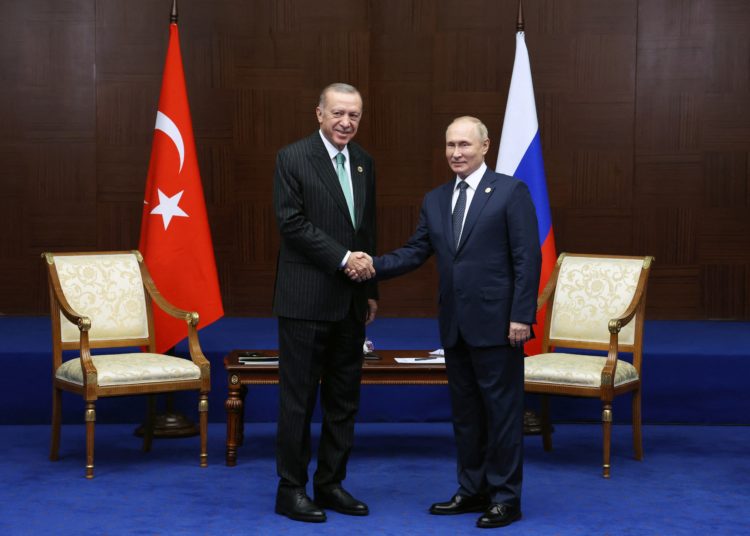Levent Kenez/Stockholm
Russian Deputy Foreign Minister Mikhail Galuzin on August 19 met with Tanju Bilgiç, Turkey’s ambassador in Moscow. During the meeting Galuzin emphasized that the shipment of weapons from the West to Ukraine is unacceptable. He also called on Turkey not to align itself with the Western coalition against Russia.
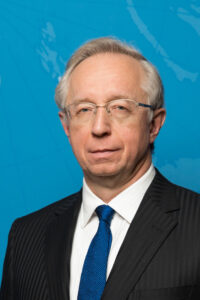
The information note regarding the meeting from the Russian Foreign Ministry, which is available in Turkish on the Russian Embassy’s website, begins by detailing Russia’s condemnation of the “terrorist” attack, which refers to Ukraine’s military incursion into the Kursk region of Russia. It states that political and diplomatic negotiations with Kyiv are not possible under these conditions. The note also includes concerns about the impact of the results from the “peace summit” held by Western countries at the Burgenstock Resort in Switzerland on issues such as energy and food security.
Russia claims that the Bürgenstock process is intended to form an anti-Russia coalition and that the formula based on Ukrainian President Volodymyr Zelensky’s positions constitutes an ultimatum against Russia.
Interestingly, Turkish Foreign Minister Hakan Fidan, who participated in the June 15-16 Bürgenstock summit, which was organized by Switzerland and hosted 92 nations and eight international organizations to discuss peace in Ukraine, expressed concerns about the risk of conventional warfare potentially involving weapons of mass destruction. He also highlighted that Russia had recently shared its own terms and conditions and called for discussions on Russia’s demands. Despite the content and proposed conditions, Fidan described these developments as significant steps and a sign of hope.
Information note shared by the Russian Embassy in Ankara:
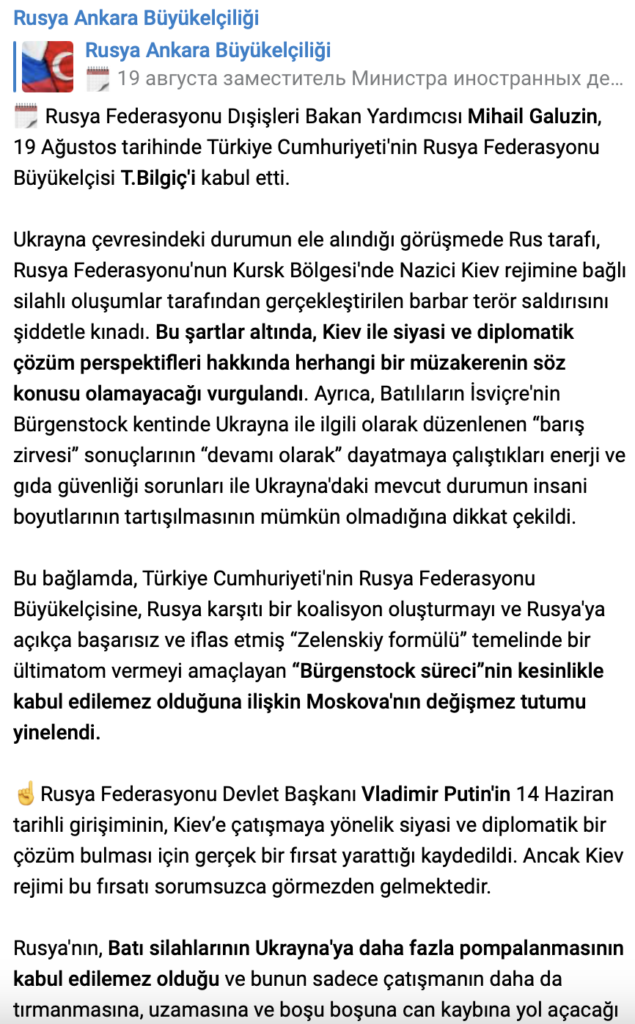
The information note also emphasized that Russian President Vladimir Putin’s call on June 14 — stating that Russia would end the war in Ukraine only if Kyiv agreed to abandon its NATO ambitions and cede the entirety of the four provinces claimed by Moscow — offered Kyiv an opportunity for a political and diplomatic solution, which the Kyiv administration has not taken advantage of. Additionally, it was noted that arms shipments from the West to Ukraine are unacceptable and would only escalate the conflict further. The meeting also included an expectation that Turkey not align itself with these Western policies.
Turkey’s military drone sales to Ukraine are continuing through the Baykar company, which is owned by the family of Turkish President Recep Tayyip Erdogan’s son-in-law, Selçuk Bayraktar. Baykar has been selling military drones to Ukraine since 2019. The drone trade, which started with six TB2 Bayraktar UAVs, continued with the delivery of an additional five to the Ukrainian Navy last year. Military experts claim that Turkey has sold more UAVs to Ukraine than announced.
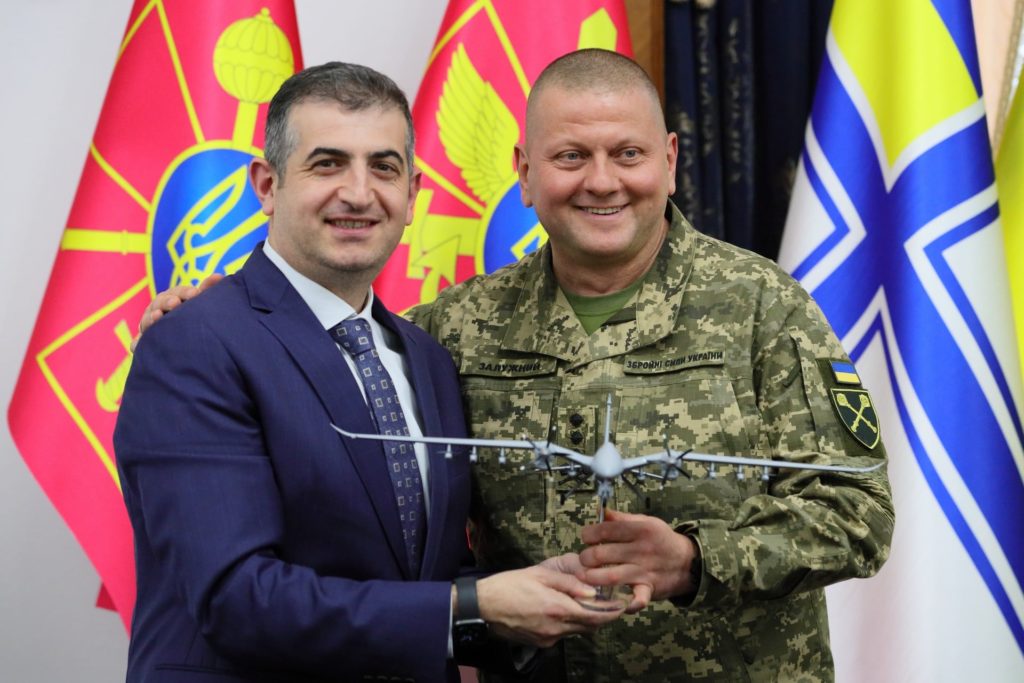
Under a 2022 agreement signed during an official visit by Erdogan to Kyiv, Ukraine will allocate land for a Bayraktar TB2 UAV production facility for 49 years and provide a number of incentives. Parts and materials used in the production of the UAVs will be exempted from duty, and all financial and personnel information regarding the new facility will be kept confidential.
For Baykar, which currently uses engines from Ukrainian companies Ivchenko-Progress and Motor Sich in the military drones they produce, the production facility in Ukraine would also afford convenience in terms of logistics and time.
Baykar CEO Haluk Bayraktar recently announced that construction had begun on the new factory near Kyiv, which will employ 500 people and focus on producing the company’s TB2 and TB3 UAV models.
In 2023 Turkey allegedly supplied Ukraine with hundreds of heavy machine guns. According to two sources familiar with the sales, Turkey delivered over 600 Canik M2 heavy machine guns to Ukraine. These weapons, which can be used by ground troops and mounted on armored vehicles, are part of an agreement with Turkish arms manufacturer Canik. The total value of the delivery was estimated to exceed $10 million. The Canik M2 models have reportedly been in use in Ukraine since April 2023, with some seen in photos of Ukrainian President Zelensky inspecting new equipment. The delivery includes the M2F model, which is used to target the small drones increasingly utilized by Russian forces.
Turkish President Erdogan, who has been carefully navigating relations with Russia, is reportedly seeking closer ties with the West due to economic challenges. This shift has reportedly unsettled Russia, which is concerned about Turkey’s balanced stance on the Ukraine conflict. The timing of Putin’s visit to Turkey, which has been postponed several times, remains uncertain. Some Russian experts suggest that the visit, which was initially announced to take place after the May 2023 Turkish general election, did not occur as a reaction to Erdogan’s efforts to strengthen ties with the West.
At a June 5 meeting with the heads of international news agencies in St. Petersburg during a major economic summit, Russian President Putin claimed that the Turkish economy stands to lose if Turkish authorities continue to turn to the West for financial support.
Drawing attention to the growing trade relations and volume between Turkey and Russia, Putin warned Erdogan, whom he referred to as his friend, saying, “It seems to me that recently the economy management of the Turkish government has focused on obtaining loans, investments and grants from Western financial institutions.”
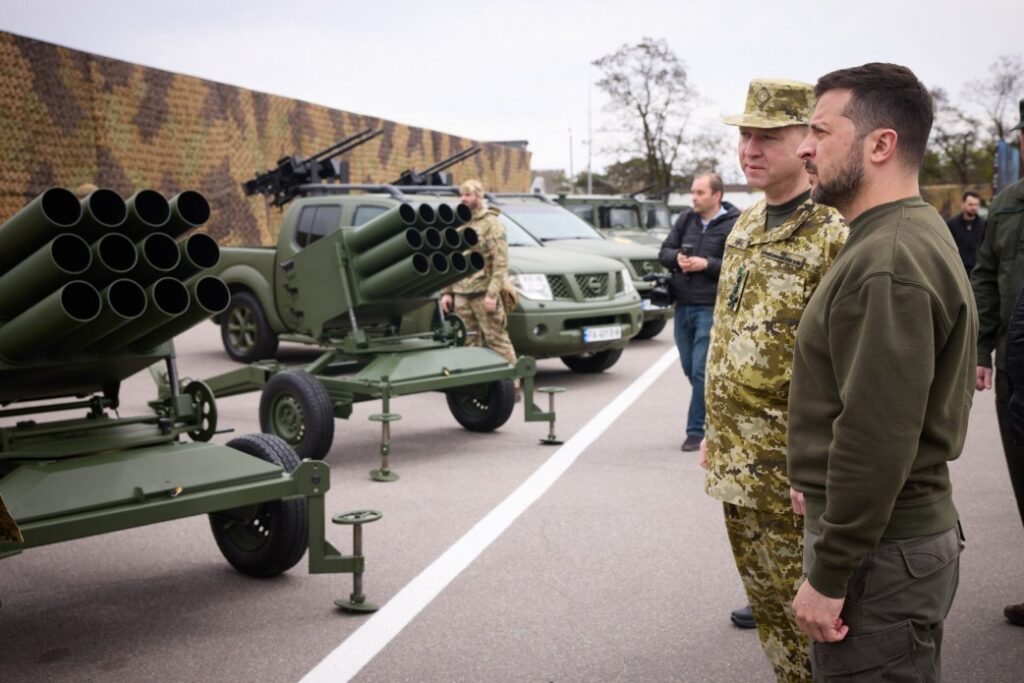
“This is probably not a bad thing. But if it’s related to the restriction of trade and economic relations with Russia, then the Turkish economy will lose more than it gains. I think there is such a threat,” Putin told journalists.
NATO member and EU candidate Turkey previously announced it would not participate in the sanctions imposed on Moscow by the United States and European Union due to its dependence on Russia for natural gas and also because Turkey is a favorite destination of millions of Russian tourists.
However, many countries, including EU member states, have been evading sanctions by using Turkey as a conduit for exporting to Russia. In trade conducted by land transportation in particular, many Turkish companies continue to transport products from EU companies to Russia.

